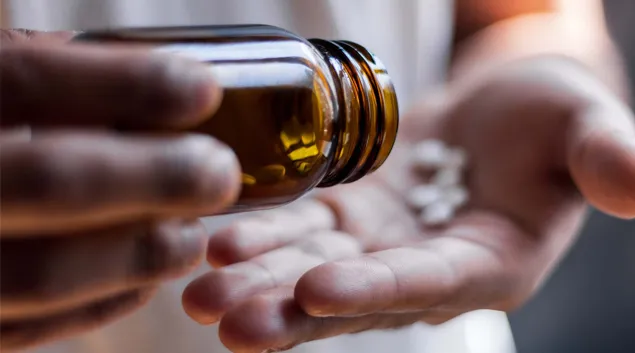
Eli Lilly is sounding a warning on proposed tariffs on pharmaceuticals, saying it would raise costs and threaten patient access.
The drugmaker said last week that the costs for breakthrough medicines should be more fairly shared across developed countries. The prices for medicines paid by governments and health systems need to increase in other developed markets like Europe in order to make them lower in the U.S., Lilly said.
But the company also highlighted a need to address underlying structural issues in the U.S. that have contributed to rising drug prices and called the American healthcare system "complex and opaque."
"This makes the U.S. different from other developed nations, which have a less complicated system and low, or no, out-of-pocket costs for patients," the drugmaker wrote.
Lilly said it opposed tariffs on all pharmaceutical products.
"Medicines have long been excluded from tariffs because of their life‑saving nature," the company wrote. "Broad tariffs would raise costs, limit patient access and undermine American leadership, especially for companies already investing heavily in domestic manufacturing."
Eli Lilly will soon announce higher prices for its drugs in markets like Europe in an effort to "align prices across developed countries," according to BioSpace. The move comes as pressure mounts from the Trump administration to lower the cost of medicines to match what other equivalent nations pay or face consequences.
WHAT'S THE IMPACT
The proposed pharmaceutical tariffs also drew ire from the American Hospital Association when they were first announced in the spring. Tariffs on items such as pharmaceuticals, medical devices and personal protective equipment could threaten the availability of crucial medications and devices, and could raise costs for hospitals and exacerbate shortages and supply chain disruptions, said 2025 AHA Board Chair Tina Freese Decker.
"We've already seen the impact of supply chain disruptions in the aftermath of Hurricane Helene," wrote Decker. "To continue providing the care our communities rely on, hospitals and health systems need exemptions to ensure access to essential imports."
AHA President and CEO Rick Pollack has urged the administration to provide tariff exemptions for medications and medical supplies.
Pollack, in a February letter addressed to Trump directly, said exceptions to tariffs for medical devices and pharmaceuticals made in Mexico, Canada and China are "essential" for providing safe, effective care.
"It is especially critical to have these exceptions for products already in shortage and for which production in the countries subject to increased tariffs supply a significant part of the U.S. market," he wrote.
Lilly, for its part, said it is intensifying efforts to align prices across developed countries, particularly in Europe, and is working with certain governments to make pricing adjustments by Sept. 1. This includes an agreement with the government of the United Kingdom to increase the list price of Mounjaro.
Since 2020, Lilly said it has committed more than $50 billion to U.S. manufacturing expansion, including 10 active projects designed to supply the American market entirely from U.S. facilities, and to increase exports.
THE LARGER TREND
The volatility of tariff policies is making it difficult for hospital executives to pin down the effect they will have on the supply chain and budget.
It's not just the products themselves that are important, but the raw materials for pharmaceuticals, which mainly come from China, the AHA said. These active pharmaceutical ingredients, or APIs, are the most important components of any pharmaceutical manufacturer's supply chain, the group said, and about 30% come from China – meaning the tariffs may hamstring manufacturers in their efforts to produce drugs in the U.S.
China is also a major source of medical devices – many of them designed for single use, like blood pressure cuffs and stethoscope covers – and disrupting the availability of these instruments could hinder clinicians' ability to perform surgeries and keep patients safe from contagion, the AHA said.
Email: jlagasse@himss.org
Healthcare Finance News is a HIMSS Media publication.